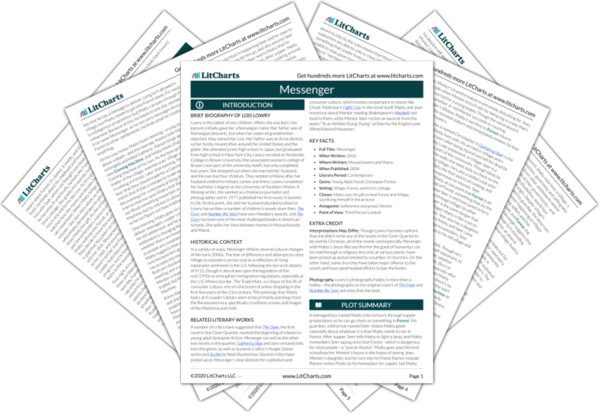AI ToolsNew
Tools to make learning and teaching easier
|
Previous
Chapter Seven
|
Messenger: Chapter Eight Summary & Analysis |
Next
Chapter Nine
|


Upgrade to unlock the analysis and theme tracking for all of MessengerMessenger!
Get LitCharts A+